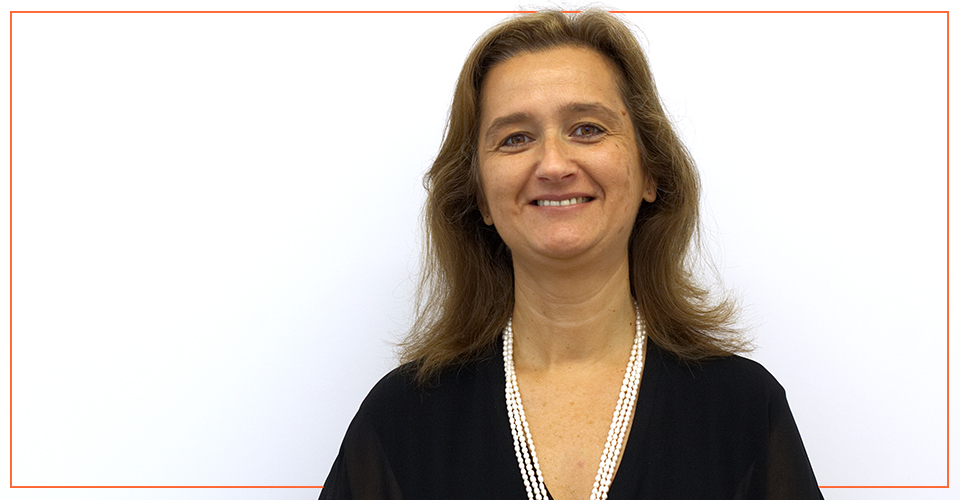Teresa's story: how ALS changed my life
Last updated: 12 April 2019
You can legally access new medicines, even if they are not approved in your country.
Learn how
'During adversities I always try to see the good side and to see why things happen...it's just a characteristic I have.'
Meet Teresa from Portugal. Spending years as a caregiver, she became an integral part in setting up the Associação Portuguesa de Esclerose Lateral Amiotrofica (Amyotrophic Lateral Sclerosis Portuguese Association, or APELA).
Now her story begins.
Teresa had a pleasant life with family and friends. Her husband was an active person who would take the jeep for a spin, or hop on his motorcycle to drive around the countryside. Then one day everything changed. After experiencing leg cramps and muscle spasms her husband visited his doctor. They were referred to a neurologist who said, 'You have a neurological degenerative disease that has no cure. We don't know the reason for this disease and you will probably be in a wheelchair in a year and will not walk again.'
Her husband had amyotrophic lateral sclerosis, more commonly known as ALS or MND (motor neuron disease). They were devastated. ALS is a progressive disease affecting the nerve cells that control voluntary muscle movement. Over time the muscles weaken and waste away making it more and more difficult to stand, speak, swallow food or even breathe.
Expectations and frustrations
After reading more about the disease, Teresa came to the conclusion that ALS patients at that stage typically had a 3-5 year life expectancy. However, her husband would survive another 11 years and she would stand by him till the end.
Teresa:
I was 39 years old so I thought I could just put my life in stand-by and treat him, then resume my life afterwards. And that's what I did, it was a decision I made. [...] The first two years of the illness were very difficult because we did not have time to get used to one situation before we had another one to adapt to. [...] He was very upset about the situation...he was a perfectionist and not being able to do things, it was very complicated.
Patients go to the limit of their abilities
Her husband continued to work for as long as he could. Even when he could no longer walk, he still drove. 'This is normal for patients like him,' Teresa said, 'they go to the limit of their abilities.' A that point eating became very difficult and it would take two hours to feed him lunch. Eventually it became necessary to use a feeding tube. There was a complication while placing the feeding tube, and her husband had the choice between being tracheostomised or to die.
Teresa:
It was horrible for me, it was a like bucket of cold water and I remember that I cried so much with the doctor and told him that. I did not know if he would want it.... I never talked to him about the disease, we never talked about how things were going, we always lived day to day, as normal as possible.
[He] asked me, “If I do the tracheostomy will you stay with me?”, and I answered, “Of course. Do you think I stayed with you these two years only to leave you now? Of course I'll stay with you.” And he said, “In that case, I want to do it.” It was a very special day for me because I don’t think I had heard my husband say that he loved me for years, until I heard it that day. After telling him that I was staying with him until the end, he said that he loved me and I think it was worth it just for that.
A day in the life
Teresa:
Normally he liked to lie in bed in the morning, he had a television in the bedroom, so he slept and watched a lot of TV. There was a lady who used to help me out in the house with housekeeping, so I used to take this little bit of the morning and I would go out for a little while, which was never too long. I would get up between 7 and 8 am, check his airways, [take care of his] hygiene, and give him breakfast. I'd then leave home at around 11am or noon, and the maid would leave at 1pm, so I’d go out for about an hour. Often rushing everywhere and sometimes I wouldn’t even go out because it wasn’t worth it. If I did go out, it would be for trips to go to the pharmacy, to the supermarket and to visit my mother and be with her for a while, because otherwise I couldn't spend time with her.
Then at 1 o'clock the maid would leave, and it was me who stayed at home. I would lift him from his bed, dress him normally (he never stayed in bed, he didn’t want to), shower him twice a week, give him lunch and in the afternoon we would be there, at home. He was on the computer, he had a specific program that worked with his eyes, and he liked to go to Facebook, read the news, watch a movie if there was one on television that he liked. And I would stick around. At first I had a little more availability because I did not have to be next to him all the time. In the last two years I could not leave his side. The fact that he was so sick for years meant that his eyelid muscles themselves were tired, so he couldn’t blink as easily, which made it hard for him to use the computer. So I spent afternoons leaning on his armchair to click enter on his computer. I spent afternoon after afternoon like that.
At the end
Surviving much longer than originally thought, Teresa's husband connected with an ALS patient group and became good friends with a fellow patient. This also gave Teresa some valuable perspective and comfort that she was not alone in this situation. Teresa's husband was able to see his daughters grow up and after battling this disease for 11 years he passed away on Christmas day.
Teresa:
I had 33 people spending Christmas at my house...I let him watch TV, like he did every day and went to the kitchen. It was 12:30 and I went to him and said, "People are coming and you're still like this?" Let's get you ready! And he was dead, he’d fallen asleep, it was the most peaceful thing in the world. [...] It had to happen, we knew it was going to happen, but no one expected it, of course, we are never prepared. But I think he chose a perfect day.
Looking back, would you do anything differently?
Teresa:
No, not for me. […] I don’t tell people to do things very differently from what I did, because these patients need lots of love and patience. [But] my body started to say, come on, you can't take it anymore. By then I was physically very tired. [...] It was me who carried him alone, who showered him alone, who moved him from the bed to the chair and from the chair to the bed by myself…. I started having heart problems. [...] I am aware that I had reached the limits of my abilities and so had he. [...] I felt that things had to end soon or something would go wrong and I would get [too sick to care for him]. [...] What I say is to seek help because I never had anyone to help me.




